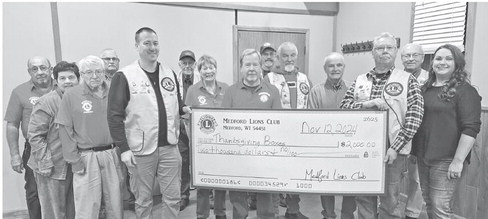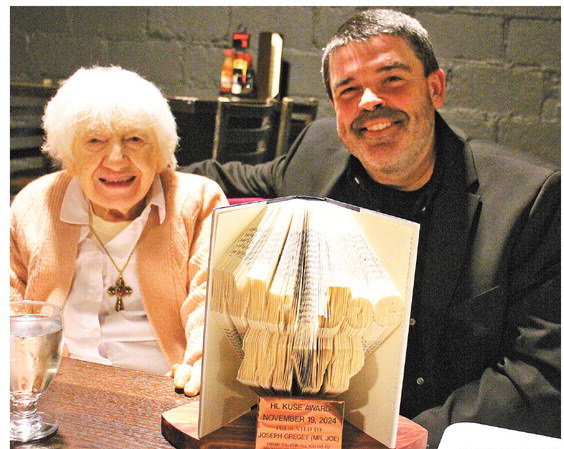Commission on Aging meal programs continue despite COVID-19
The Commission on Aging has been experiencing problems with some thinking their senior centers are closed down, but they want their patrons to know that they are still operating meal delivery and pick-up options.
A large sum of aid funding from the COVID-19 stimulus package was given to support seniors’ nutritional needs. They were granted $4,326 for congregate meals and $15,847 for delivered meals from the Families First Relief Act, and $36,033 for delivered meals from the CARES Act. In total, it’s $51,880 more for home-delivered meals than the commission would receive in a normal year.
The government directed them to spend the aid money first, dipping into their normal funding once the stimulus money is depleted. If they don’t spend all of their newly allocated cash this year, they’ll be able to carry it forward into next year.
“The idea of the extra money is to get more meals out to people and help them to be able to stay at home as much as possible,” said director Nathanial Brown.
With the money, the commission will increase meal availability by one day at each of its sites, though they are “unsure” how it will work out.
Additionally, they looked at the possibility of offering frozen meals so people can stock up on several days worth of food at a time, such as for over the weekend, but that hasn’t been met with too much enthusiasm, as people obviously prefer fresh food. The option to order additional meals ran into a problem with people receiving duplicate meals, when they want a variety of food.
Brown said the plans going forward are in their framework stage, and they are still making adjustments.
“Between everything, I don’t have a nailed down ‘we could start’ site yet. I’m further along on some sites than others, but working to figure everything out on all the sites,” Brown said of the plan, adding that he isn’t going full throttle until they gain more information and work out some of the kinks. “It’s not something I really want to announce until we have it done with at all the sites and figure out what we are doing.”
The physical act of getting the meals made and delivered to people has proved a logistical hitch too, because as Brown noted, the workers are largely volunteers and “most of the staff fit the age group we’re trying to protect,” leading to some hesitation.
The Medford center has seen a drop in attendees, whereas other centers’ numbers stayed about the same. Since there are so many more restaurant options in Medford, seniors don’t have to rely as much on the center for food as those who live in more rural communities do. On the other hand, Brown pointed towards the social side of centers as often being more important than the meals themselves.
“There is so much socialization that people are missing out on right now because of the sites being closed [to in-person interaction] right now,” he said, explaining that he is working on a system to buddy aging center attendees up, so they “just have somebody to talk to.”
COVID-19’s affect on the food supply lines has forced some changes in the meals, but nothing drastic. The commission noted potatoes were difficult to obtain for a while, and since meat packing plants have been seeing an increase in cases leading to factory shutdowns, the commission is expecting it to get more difficult to get some meats as well.
“There are going to be times when we have to substitute items,” said Brown. “It’s been tough for [everyone involved] because sometimes they’re not notified until basically they get the food.”
Like everybody, the Commission on Aging isn’t 100% sure on what the appropriate measures to take are, but they’re doing what they believe to be right.
“I think every day one of us says to the others just how weird it is with so few people in the office and with phone calls being down,” Brown said. “We’re figuring out what it’s like to work in this weird situation that we are in... It’s all just wait and see.”


